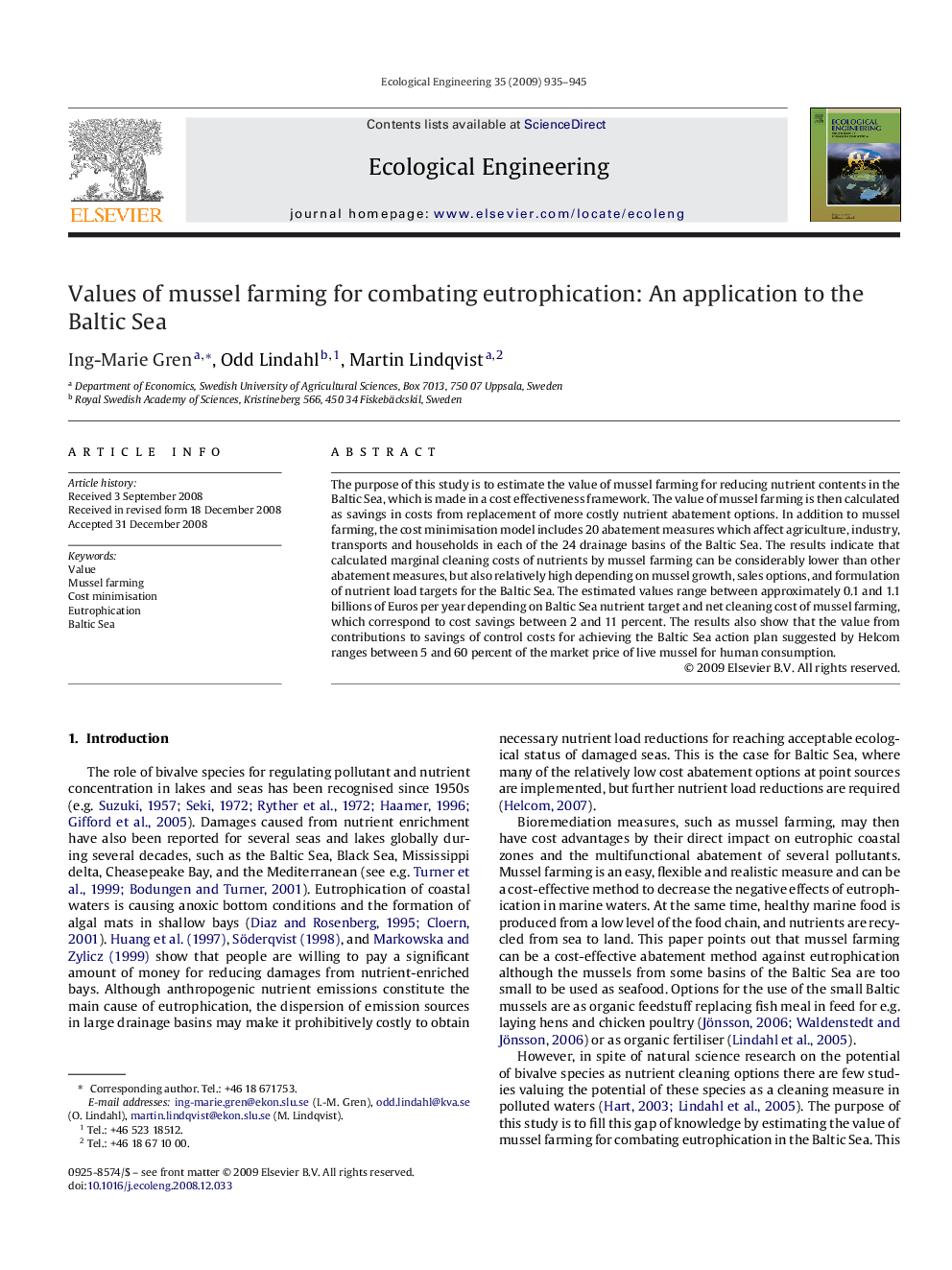| Article ID | Journal | Published Year | Pages | File Type |
|---|---|---|---|---|
| 4390966 | Ecological Engineering | 2009 | 11 Pages |
The purpose of this study is to estimate the value of mussel farming for reducing nutrient contents in the Baltic Sea, which is made in a cost effectiveness framework. The value of mussel farming is then calculated as savings in costs from replacement of more costly nutrient abatement options. In addition to mussel farming, the cost minimisation model includes 20 abatement measures which affect agriculture, industry, transports and households in each of the 24 drainage basins of the Baltic Sea. The results indicate that calculated marginal cleaning costs of nutrients by mussel farming can be considerably lower than other abatement measures, but also relatively high depending on mussel growth, sales options, and formulation of nutrient load targets for the Baltic Sea. The estimated values range between approximately 0.1 and 1.1 billions of Euros per year depending on Baltic Sea nutrient target and net cleaning cost of mussel farming, which correspond to cost savings between 2 and 11 percent. The results also show that the value from contributions to savings of control costs for achieving the Baltic Sea action plan suggested by Helcom ranges between 5 and 60 percent of the market price of live mussel for human consumption.
